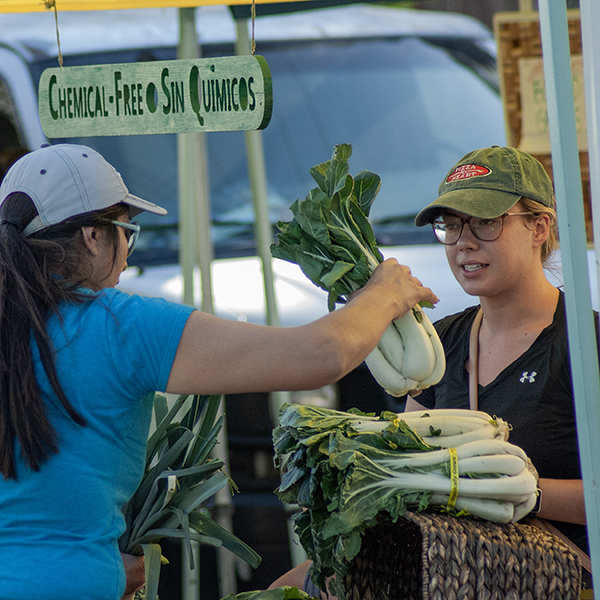2024 - 2025 (TBA)
Equity Institute Peer-to-Peer Reciprocal Coaching Faculty Learning Community
Introduction
Faculty have tremendous influence to make a difference in the lives of students for whom higher education has historically been the least successful in welcoming and supporting. We can embed racial equity in teaching practices and create classroom cultures that are genuinely inclusive of students from minoritized racial/ethnic groups. Designing and adopting pedagogy, curriculum, language, roles, routines, and symbols that foster racial equity as the norm is equity-minded teaching.
Being racially aware and teaching in an equity-minded way requires much knowledge and attention. First, it calls upon our deepest disciplinary knowledge, attention, planning, purposefulness, and experimentation. Second, it requires ways of seeing our classrooms that are new and uncomfortable for many of us. For this reason, faculty find that working together to implement the strategies is more effective than working in isolation. Peer-to-peer reciprocal coaching is a systematic method for faculty to work in partnership to use new teaching skills and/or hone basic skills into sophisticated praxis.
The 2024-2025 Equity Institute Peer Coaching Faculty Learning Community
Prerequisite: Participants must have participated in USC’s Equity Institute in Spring 2021, Fall 2022, or Spring 2023.
In general, faculty peer-to-peer coaching involves semester-long or yearlong, structured partnerships between two or sometimes three faculty who offer collegial support, ideas, and constructive critique in the implementation of selected teaching strategies (Rainville et al., 2023). Faculty engage in training to provide effective peer-to-peer coaching and to select teaching strategies they want to apply. They then visit and observe class meetings or otherwise review course materials two to three times per semester, offering mutual feedback based on agreed-upon questions of practice. Pre-visit and post-visit conversations are included. Peer coaching is completely formative, i.e., non-evaluative. Class visits, materials review, and conversations are not included in faculty evaluation (RTP or lecturer evaluation) in any way. Confidentiality is of utmost importance, with the sole exception being the event that sexual harassment, sexual misconduct, or sex- and gender-based discrimination is observed and must be disclosed to the Office of Compliance and Equity, i.e. Title IX.
Peer coaching for participants of the USC Equity Institutes at Cal Poly Pomona will focus specifically on race-aware equity-minded observation.
Activities
Fall 2024
Activity
|
Date/time
|
Requirement
|
|
Active learning, equity-minded classroom observation, & peer coaching workshop
|
|
Required in person
|
|
Fall semester 2-visit cycle (i.e. Person A visits Person B two times; Person B visits Person A two times. Pre-visit and post-visit conversations required.)
|
Arranged at mutually convenience times; must be completed by Thanksgiving
Visit cycles estimated 3 hr
|
Required. Format to be determined by mutual agreement and class format
|
|
October Zoom group check in
|
|
Recommended. Via Zoom.
|
|
December wrap-up and assessment
|
|
Required in person
|
Approximate total time in Fall 2024 for all activities: 15-17
Spring 2025
Activity
|
Date/time
|
Requirement
|
|
Active learning, equity-minded classroom observation, & peer coaching workshop 2.0
|
|
Required in person
|
|
Fall semester 2-visit cycle (i.e. Person A visits Person B two times; Person B visits Person A two times. Pre-visit and post-visit conversations required.)
|
Arranged at mutually convenience times; must be completed by late April
|
Required
|
|
March Zoom group check in
|
|
Recommended
|
|
May wrap-up and assessment
|
|
Required in person
|
Approximate total time in Spring 2025 for all activities: 15-17
Compensation & Benefits
Faculty will be paid an overload (stipend) of $250 per semester for completing activities in the semester. Partial stipends are available for partial completion, but engaging in training, one visit cycle, and providing feedback for program assessment is required. Peer coaching represents a significant investment of time and energy. Participants will receive all books and materials. The most important benefit to faculty will be the peer-to-peer coaching relationships.
Who should apply
Any faculty who have participated in the USC Race & Equity Center “Equity Teaching Institutes” in Spring 2021, Fall 2022, or Spring 2023 are eligible.
Lecturers and tenure-line faculty are invited. Lecturers should have reasonable expectation of teaching in Spring 2024 but do not need a spring contract at this time. FERPing faculty must be teaching in both semesters. Graduate teaching assistants are not eligible.
Faculty who are successful in peer-to-peer coaching tend to have the following characteristics:
- Growth mindset toward their own teaching skills and toward their students
- High interest in effective teaching and responsiveness to evidence regarding effective practices
- Ability to manage time and calendar activities such that commitments are met
- Willingness to experiment in the classroom
- Willingness to accept and provide constructive, respectful feedback
- Commitment to confidentiality
Application
TBA
Questions?
Contact Victoria Bhavsar, Director of CAFE, at vbhavsar@cpp.edu.
Literature
Burkholder, E., et al. 2021. An equitable and effective approach to introductory mechanics. Cornell University. https://arxiv.org/abs/2111.12504.
Freeman, S., et al. 2014. Active learning increases student performance in science, engineering, and mathematics. PNAS 111(23): 8410-8415. https://doi.org/10.1073/pnas.1319030111.
Rainville, K.N., D.G. Title, and C.G. Desrochers. 2023. Peer coaching in higher education: Faculty coaching partnerships to support rigorous and engaging classrooms. Charlotte, NC: Information Age Publishing.
Theobald, E.J., et al. 2020. Active learning narrows achievement gaps for underrepresented students in undergraduate science, technology, engineering, and math. PNAS 117(12):6476-6483. https://doi.org/10.1073/pnas.1916903117.
Wieman, C., and S. Gilbert. 2014. The Teaching Practices Inventory: A new tool for characterizing college and university teaching in mathematics and science. CBE Life Sciences Education 13(3): 552–569. https://doi.org/10.1187/cbe.14-02-0023.
Wieman, C., and S. Gilbert. 2018. The Teaching Practices Inventory updated for social sciences. https://cwsei.ubc.ca/sites/default/files/cwsei/resources/tools/CWSEI_TeachingPracticesInventory.pdf, verified 31 August 2022.

